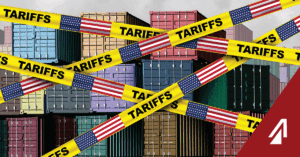The Generalized System of Preferences (GSP) is the largest and oldest U.S. trade preference program. According to U.S. Customs and Border Protection, the program’s primary goal is to spur economic development by eliminating duties on thousands of products imported into the U.S. from designated beneficiary countries and territories. However, the GSP program expired on December 31, 2020, and is currently pending Congressional action to pass legislation for the program’s renewal.
The ongoing discussions surrounding the GSP renewal present a pivotal moment for businesses engaged in international trade. As duty-free benefits for certain goods from developing countries hang in the balance, there is a potential for significant cost advantages and enhanced profit margins. Understanding these potential benefits is crucial for informed decision-making and can bring a sense of optimism about the future of your business.
Economic Landscape and Strategic Considerations:
Renewing the GSP could offer significant cost advantages for businesses importing goods from designated countries. Reduced duties on eligible products enhance cost competitiveness and profit margins, empowering companies to reinvest in growth initiatives. However, eligibility criteria or regulatory standards changes could introduce complexities, requiring strategic adaptation and proactive engagement with logistics partners.
Operational Resilience and Risk Management:
Uncertainties surrounding GSP renewals underscore the importance of robust supply chain management and risk mitigation strategies. Proactive planning is essential to anticipate potential changes in duty rates or product eligibility, ensuring continuity in supply chain operations. Collaborating closely with logistics providers who prioritize regulatory compliance and operational efficiency will be crucial in navigating evolving trade dynamics effectively. This emphasis on proactive planning can make you feel prepared and in control of potential changes.
Strategic Partnership and Value Proposition:
Partnering with a forward-thinking logistics firm can provide invaluable insights and support amid regulatory uncertainties. Industry expertise and proactive communication empower businesses to stay ahead of regulatory changes and capitalize on emerging opportunities in global markets. Together, businesses and logistics providers can optimize international trade strategies, enhancing resilience and sustainable growth in a dynamic economic environment.
As stakeholders evaluate the future of the GSP, it’s crucial to maintain a proactive stance and strategic approach to international trade. By staying informed and proactive, you can confidently navigate regulatory landscapes, feeling empowered and in charge of your business’s future. Embracing informed decision-making and strategic partnerships can unlock new possibilities for efficiency and growth.
Stay informed and proactive in your international trade strategy. Explore strategic partnerships with logistics providers who prioritize transparency, compliance, and operational excellence. Contact ProTrans to discuss how we can support your business amidst evolving trade policies and maximize your competitive advantage in global markets.



